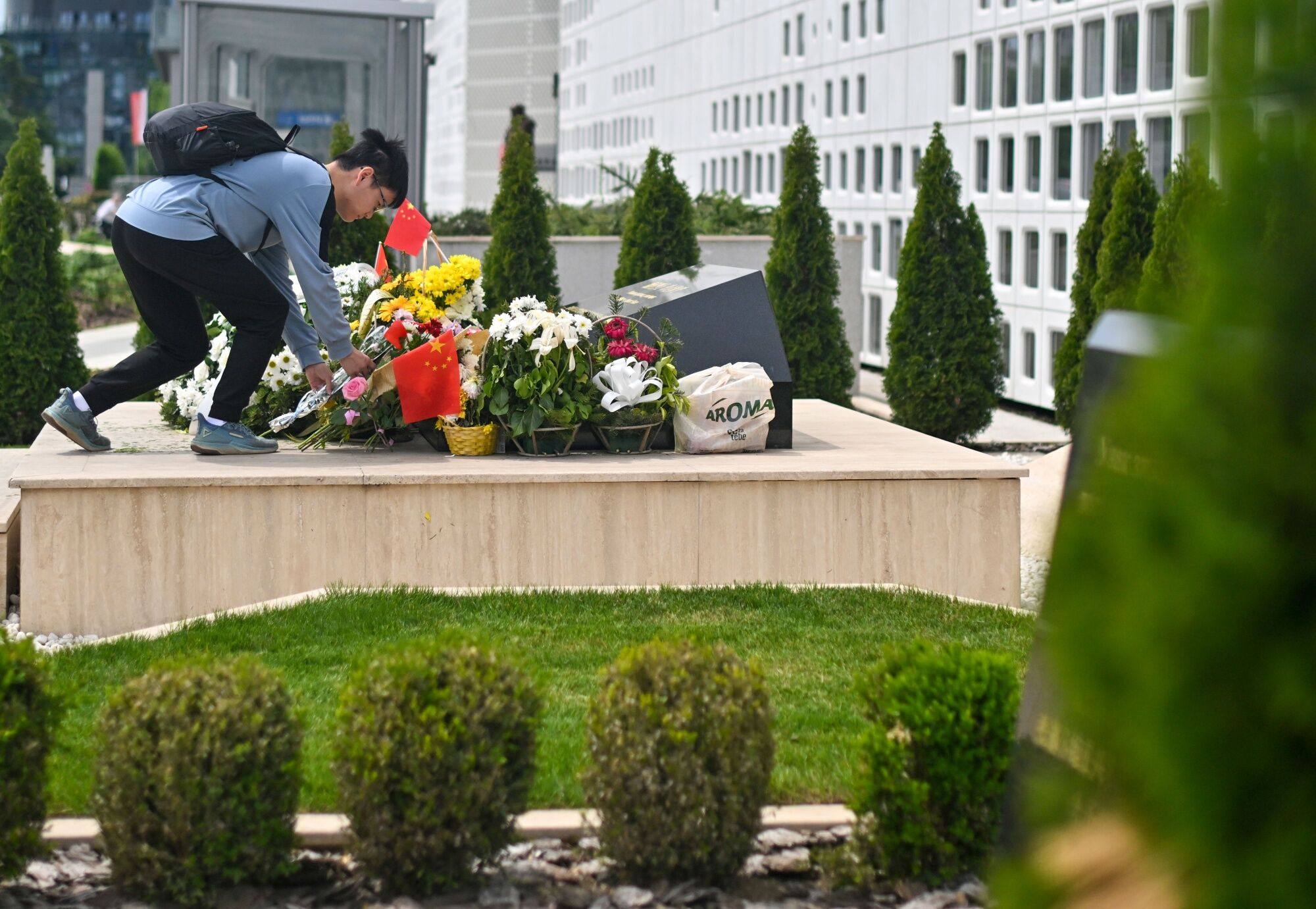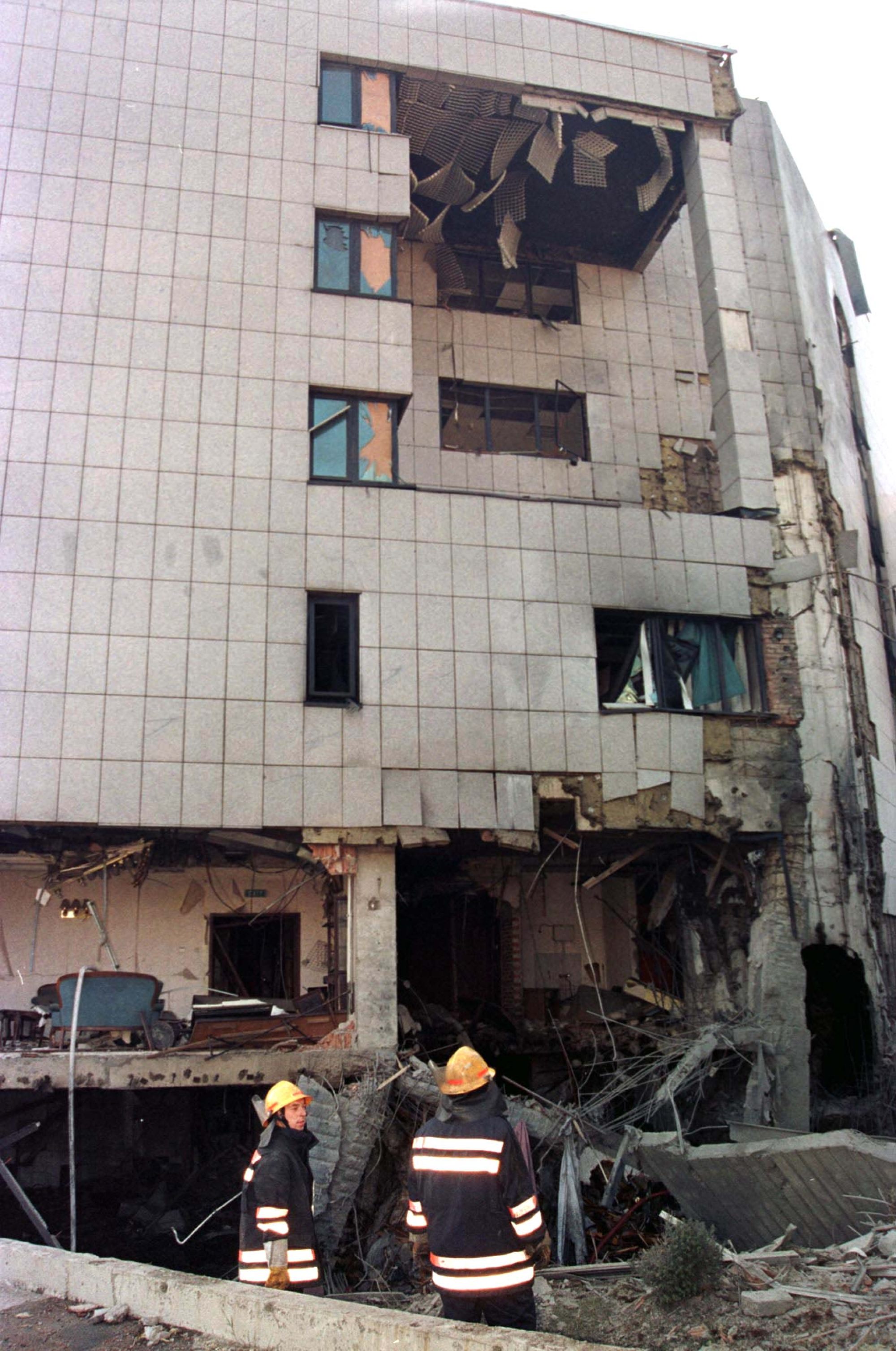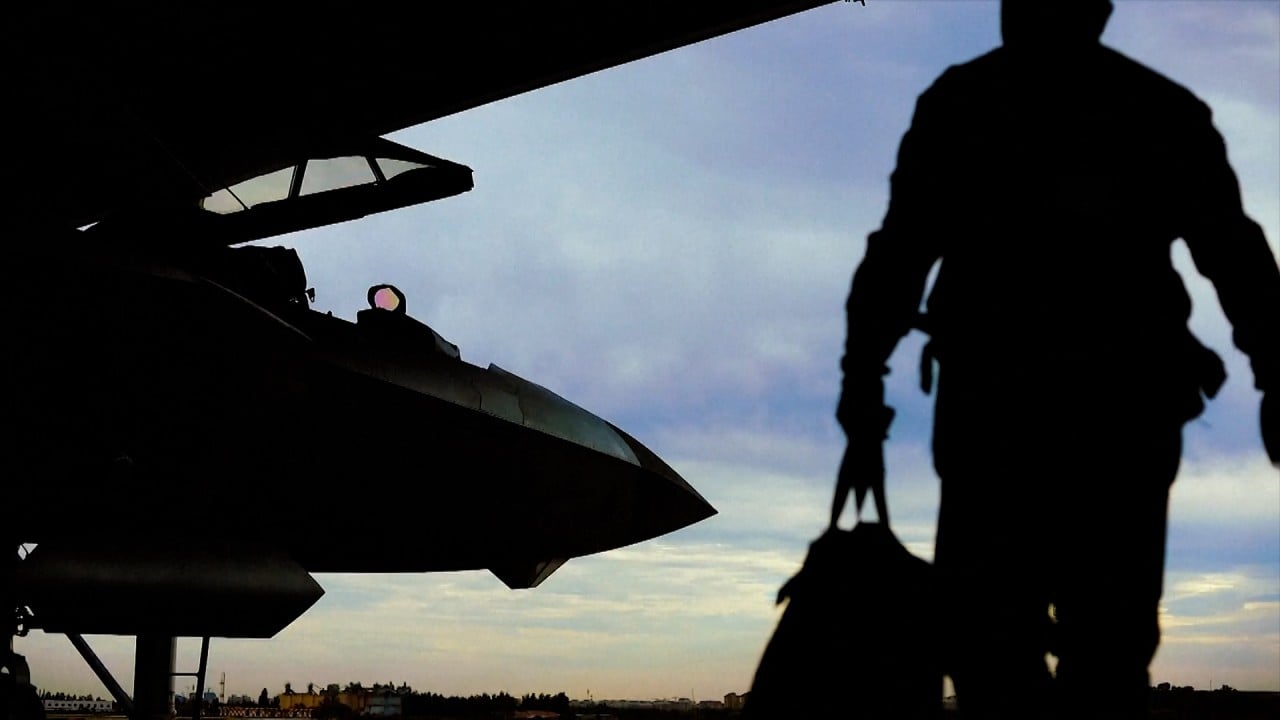Late at night on May 7, 1999, a bomb was dropped during a US-led NATO air operation against what was then Yugoslavia, killing three people. Twenty-five years later, the memory of that humiliation is still fresh in China’s leadership.
“We must never forget this,” Chinese President Xi Jinping, who is on a state visit to Serbia, wrote in an article about the incident, which was published in Serbian newspaper Politika on Tuesday.

Since 1999, China’s annual defense budget has continued to increase by double digits for more than a decade, and the level of GDP continues to increase every year. This increase in spending has made the world’s second-largest economy the second-largest military spender after the United States.
“The Chinese embassy bombing in Belgrade certainly played an important role in the subsequent increase in China’s military budget,” said Nenad Stekic, a Chinese military researcher at the Serbian Institute of International Political Economy (IIPE).
Like Yugoslavia’s People’s Liberation Army, the PLA was cut in size and budget during the 1980s and 1990s, he noted.
Then the Kosovo war and the Belgrade bombing served as a “wake-up call,” Stekic said, prompting Beijing to prioritize military modernization and allocate more resources to strengthening its defense.
Yue Gan, a retired colonel in the People’s Liberation Army, recalled that the Chinese leadership was shocked by the high-tech weaponry displayed during the 1991 Gulf War and began efforts to transform China’s military into a modern force.
Chinese military prioritizes AI-driven navy and space combat to ‘win future wars’
Chinese military prioritizes AI-driven navy and space combat to ‘win future wars’
However, due to financial difficulties during the past decade, the PLA’s budget hit a historic low in 1997, reaching just 1.03 percent of GDP. “At that time, our military budget was even lower than Taiwan’s. It was difficult to modernize,” Yue said.
According to Yue, the embassy strike was a factor in changing the situation. “The bombing was like a stab in our flesh. Humiliation turned into courage, and reforms were greatly accelerated.”
Ni Rexion, a Shanghai-based military observer, said NATO’s 78-day carpet bombing of Yugoslavia despite China having a generally larger and more advanced military than the former communist country He said he was deeply concerned.
For the first time in history, NATO has demonstrated how to take over a country using air strikes alone, he said.
China’s defense budget increases, combat preparation, “war preparation” targeted
China’s defense budget increases, combat preparation, “war preparation” targeted
According to Ni, “this post-Gulf War operation contributed to the early, rapid and complete start of China’s military modernization.”
“NATO was a good reference in many aspects, including development strategy, weapon selection, military technology, and their practical application.”
This show of force shocked the world with the use of the B-2, the world’s most advanced intercontinental stealth bomber at the time, and far ahead of China’s military development.
A quarter of a century later, Beijing is still developing its first homegrown bomber capable of intercontinental flight.
Stealth bomber ‘will give China true intercontinental strike capability’
Stealth bomber ‘will give China true intercontinental strike capability’
Yue said the People’s Liberation Army was able to ensure that precision-guided munitions, including B-2 joint direct attack munitions, penetrated multiple floors of the embassy building from various angles and eventually reached the basement. He was particularly impressed.
“Precision-guided weapons are very powerful and we need to master them,” he says.
A complete upgrade of China’s air defense systems, including early warning satellites, surveillance networks, cruise missile interception, anti-stealth radar and more advanced surface-to-air missiles, was also prioritized, Yue added.
Shift in strategy
Stekic said the Belgrade embassy bombing also significantly changed China’s perception of its overall security situation, reinforcing China’s longstanding commitment to minimizing potential threats and involvement in international conflicts and interventions. It is said to have prompted a reassessment of defense strategy.
“[The embassy bombing] He emphasized the importance of asserting China’s power on the world stage to protect its interests and sovereignty…Since then, China has adopted a more proactive approach in its security policy and strengthened its regional and global “They are actively shaping the security dynamics of the country.”
The change in China’s approach is evident in its increased military presence and participation in peacekeeping operations, counterterrorism operations, and regional security forums.
Beijing has also pursued an active foreign policy, forging strategic partnerships and alliances to protect its security interests and advance its vision of a multipolar world order.

According to IIPE researcher Aleksandar Mitic, the Belgrade incident also served as a “tipping point” in China’s relations with the United States and other Western countries, creating mistrust and suspicion about their intentions.
“China has become particularly concerned about the establishment of a ‘coalition of the willing’ that would have a direct impact on China’s internal affairs, interference with neighboring countries in the Asia-Pacific region, and interference by other Western countries,” he said. Stated.
“Confidence in Central America has never been restored.”
Mr. Mitic, who was a correspondent for Agence France-Presse in Kosovo and Belgrade during the war, said that China has since established itself as a unique player in the global media ecosystem, with the aim of balancing Western dominance. He said that he has begun to develop his role.
How will China combine finance and diplomacy to lead the Global South?
How will China combine finance and diplomacy to lead the Global South?
Stekic noted that the embassy bombing has prompted China to pursue closer strategic partnerships with countries that share similar interests in countering Western hegemony.
In particular, he said that this incident had forged strong ties between China and Serbia and contributed to deepening cooperation in various fields, including the economic, political, and military fields.
The bombing sparked widespread protests across China and has since been commemorated as part of its “national humiliation” and shared historical grievances.
Stekic said the nationalist sentiment stirred by the event likely increased public support for stronger military forces and a more aggressive foreign policy.
F-117 rumors
For 25 years, the Belgrade bombing has been the focus of speculation and conspiracy theories. The Chinese, and many others, have never been convinced by the U.S. explanation that the airstrikes were a mistake based on outdated maps.
One of the most popular theories focuses on a US stealth aircraft that was shot down by Yugoslavia’s air defense a few weeks ago.
The F-117 Nighthawk, the world’s first operational stealth fighter jet with state-of-the-art radar-evasion capabilities, crashed in a field where local farmers were collecting debris as a souvenir.
Part of the wreckage, including the left wing with the US Air Force insignia, is still on display to the public at the Aviation Museum in Belgrade.
Xi supports Hungary and Serbia as tensions between China and Europe rise
Xi supports Hungary and Serbia as tensions between China and Europe rise
There are rumors that China is interested in researching technology from the salvaged wreckage, and some versions suggest that the embassy was targeted for airstrikes because it served as a temporary storage location for some parts. claims.
Later that year, the Guardian newspaper reported that the embassy was “deliberately” bombed after NATO discovered it was “being used to transmit Yugoslav military communications.”
The report cited anonymous military and intelligence sources as saying that China was supporting future Serbian president Slobodan Milosevic, possibly in exchange for stealth technology from a downed American F-117. suggested.
China denied the reports, while NATO said the bombing was a “terrible mistake”. Nevertheless, stories about the downed F-117 resurfaced more than a decade later, in 2011, when China unveiled its first stealth fighter jet, the J-20.
Over the next few years, reports in the U.S. media surfaced repeatedly suggesting that China had acquired and reverse engineered the F-117’s stealth technology.
However, Yue considers the F-117 theory “unlikely” and says that if the embassy is used for military purposes, it could be subject to a diplomatic incident or even a physical attack. He pointed out that there is.
“If it was a credible story, the United States would definitely have used it as a defense argument, but they didn’t even mention it,” he said.
Yue also said that if Chinese intelligence wanted to study the advanced radar-absorbing coatings on the wreckage, they could send small pieces of the wreckage through civilian channels without involving the embassy or putting them at military risk. He also pointed out that it would not have been difficult to obtain them.


